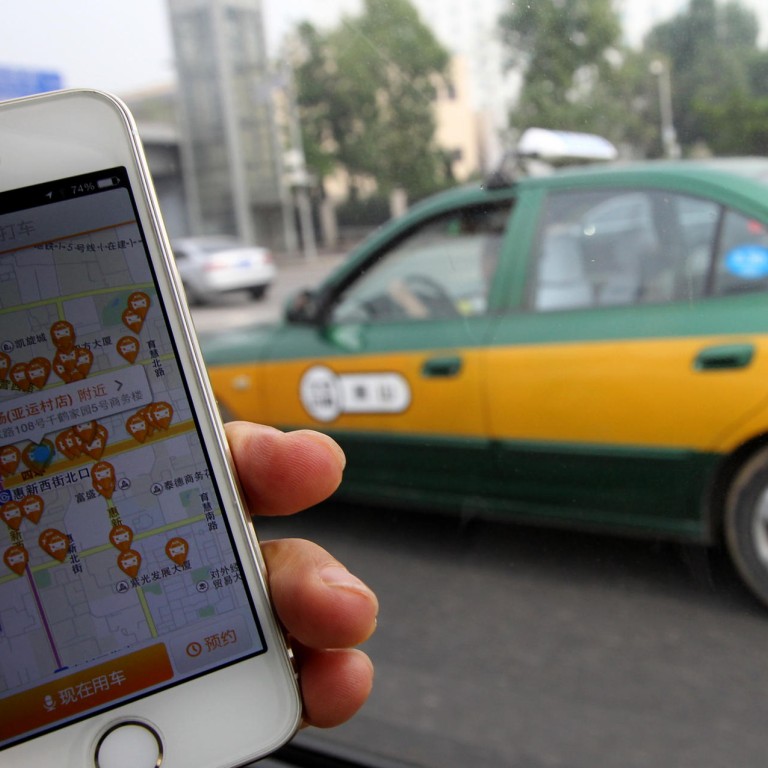
Taxi drivers in Chinese city told to pull the plug on car-hailing apps
Jinan cab companies say they will carry out checks and penalise those who don't comply
Taxi companies across Jinan in Shandong province have ordered the city's cab drivers to uninstall car-hailing apps, saying the services have disrupted the market.
The city's 37 taxi companies sent the order in mobile text messages to more than 8,000 drivers on Saturday, the reported yesterday.
"The apps have seriously affected the income of taxi drivers as well as traffic safety. We call on all drivers to uninstall the car-hailing apps from May 30," the message said. The firms will continue sending the message to drivers three times a day for three days via GPS communication devices and WeChat, according to the report.
The companies will also carry out inspections and penalise drivers who do not uninstall the apps.
The crackdown is designed to regulate use of the car-hailing services, one unnamed spokesman from a Jinan taxi company was quoted as saying. The companies did not consider the apps illegal, but believed the services should only be used by licensed taxi drivers.
The apps allow drivers - including those without cab licences - to directly pick up passengers, often at cheaper rates than regular taxis.
One of the biggest car-hailing apps is Didi Dache, which launched in September 2012 and has more than 100 million users on the mainland.
In February, Didi, backed by internet giant Tencent, and rival Kuaidi, supported by Alibaba, announced they would merge to expand their market share.
US-based Uber is also expanding in China, offering services in nine cities since its mainland launch in February.
But the competition from the apps has drawn protests from taxi companies and drivers.
The authorities in Luoyang , Henan province, shut down Didi and Kuaidi's offices in the city after protests by taxi drivers last month.
City officials also raided Uber's operations in Chengdu and Guangzhou in May.
In January, taxi drivers in five cities including Jinan, Chengdu and Nanjing , went on strike in protest against the loss of business to the car services.
Opinion over the protests has been divided online, with some saying the drivers' response was understandable given the threat to their livelihood while others said there was no way to stop the changes brought by smart devices and the internet.
"Local government and the state taxi industry have stopped pursuing innovation. Their attempts to suppress smartphone apps will fail," one microblogger wrote on Sina Weibo.

